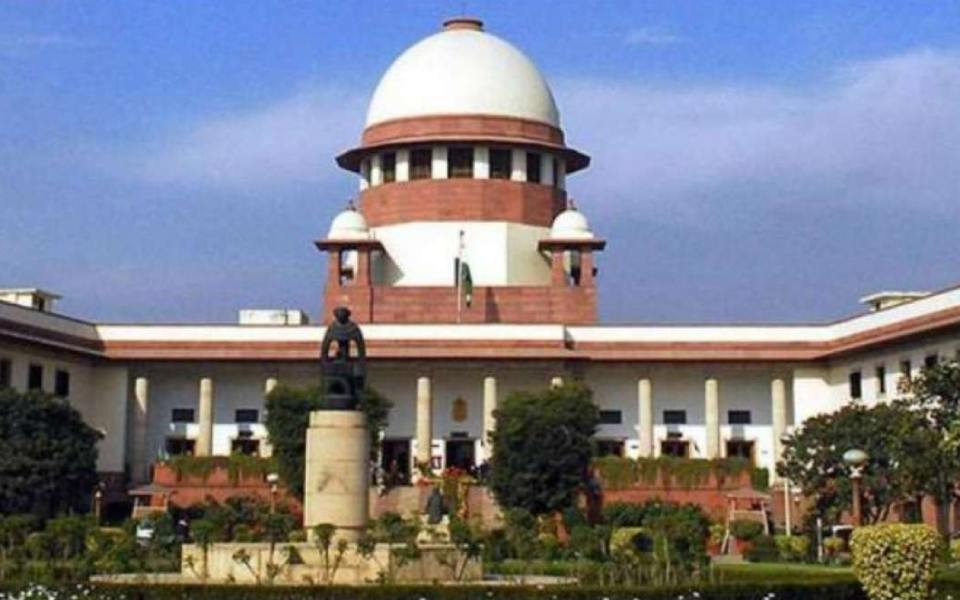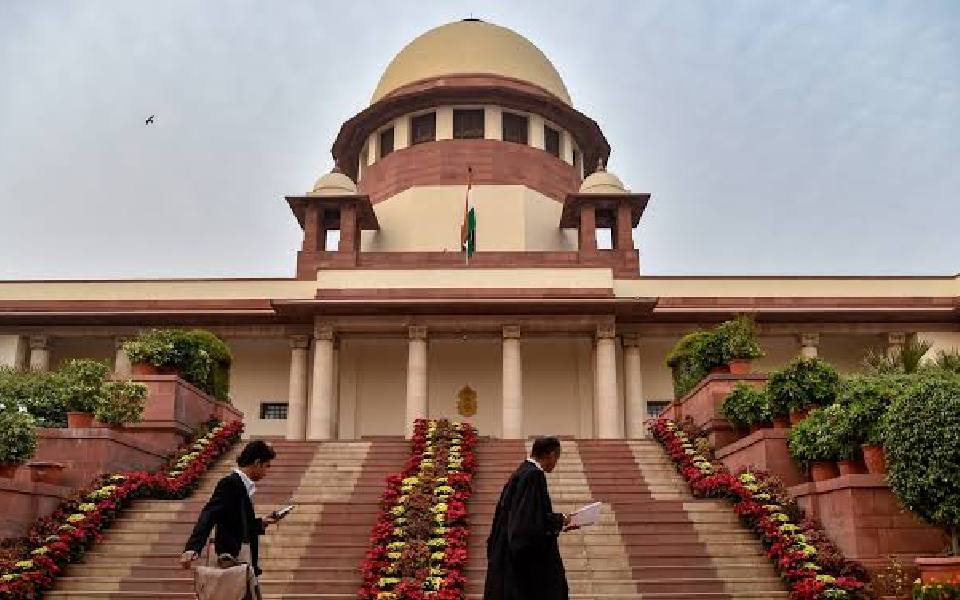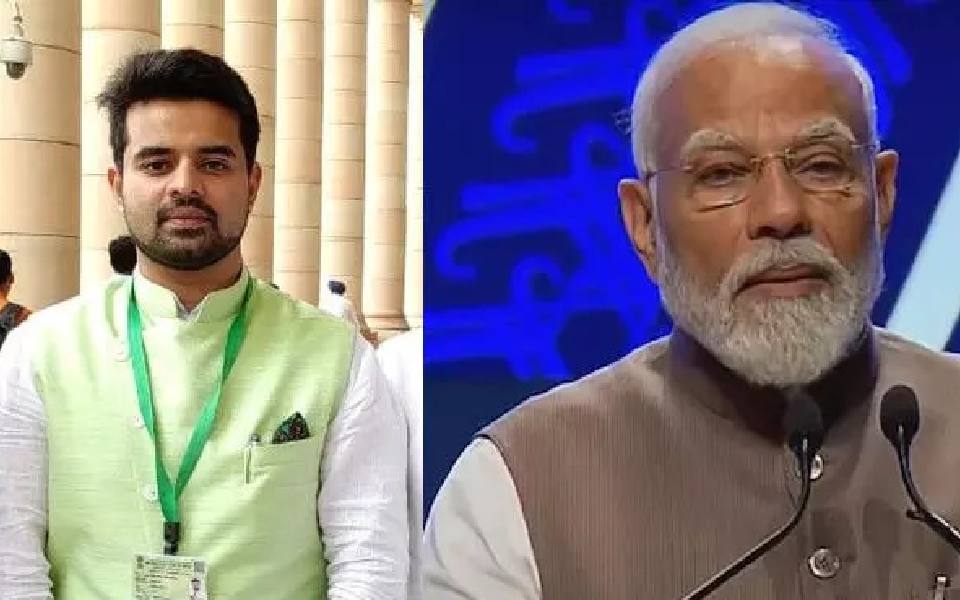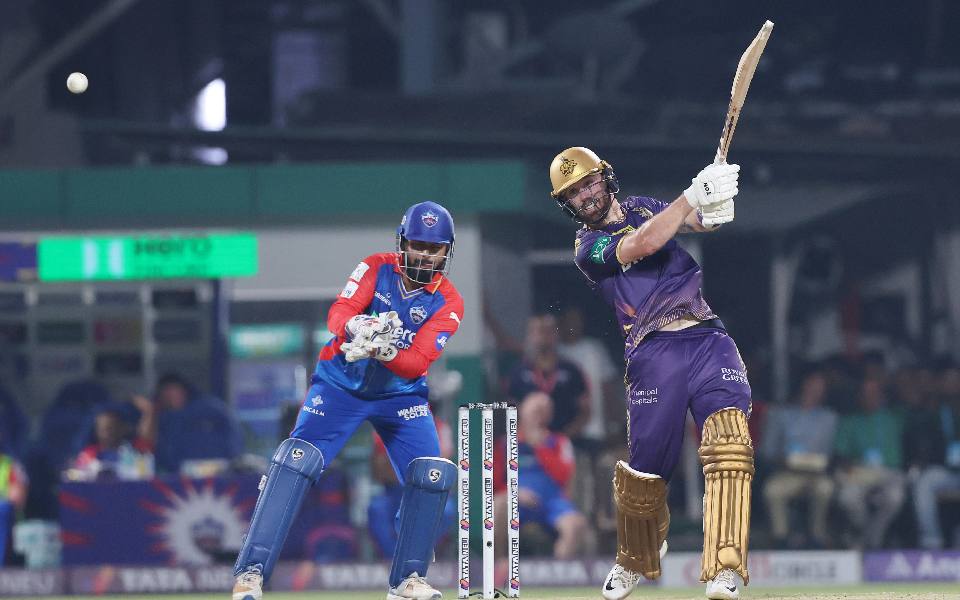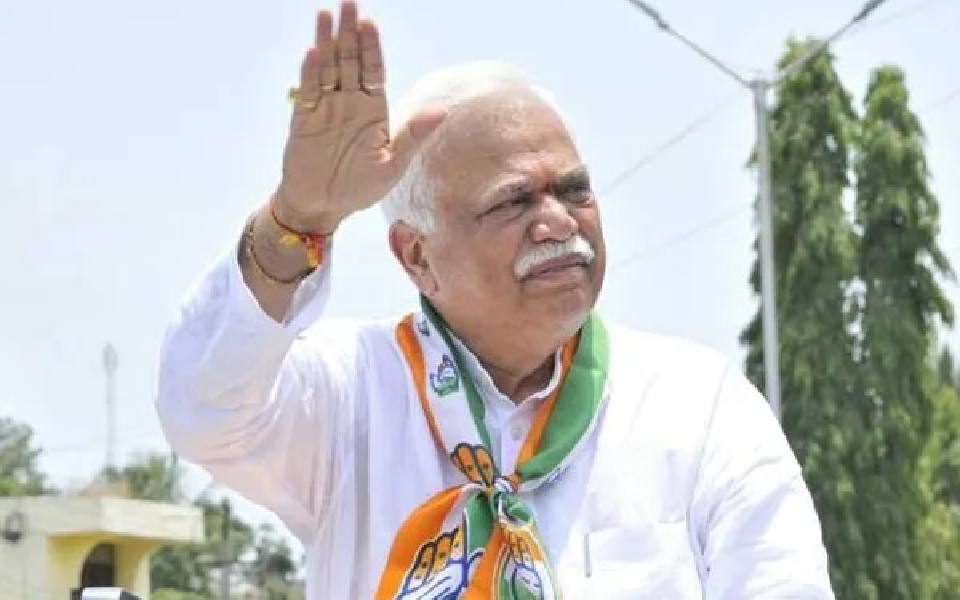New Delhi, Apr 16: The Supreme Court on Tuesday asked various state governments to apprise it in six weeks on the action taken in incidents of mob lynching and cow vigilantism.
A bench of Justices BR Gavai, Aravind Kumar and Sandeep Mehta posted for hearing after six weeks a plea filed by a women's organisation seeking directions to states to take immediate action in consonance with a 2018 verdict of the apex court to effectively deal with incidents of lynching and mob violence against Muslims by cow vigilantes.
"We find that most of the states have not filed their reply affidavits to the writ petition giving instances of mob lynching. It was expected of the states to at least respond to what action has been taken in such cases. We grant six weeks' time to the states who have not filed their replies and also give details of steps taken by them in such cases," the bench ordered.
The top court was hearing a plea filed by the National Federation of Indian Women (NFIW), an organisation linked to the Communist Party of India in which notices were issued last year to the Centre and the DGPs of Maharashtra, Orissa, Rajasthan, Bihar, Madhya Pradesh and Haryana seeking their responses to the plea.
During the hearing, advocate Nizam Pasha, appearing for the petitioner organisation, said that in Madhya Pradesh there was an incident of alleged mob-lynching but the FIR was registered for cow slaughter against the victims.
Pasha submitted, "If the state is to deny the incident of mob lynching, then how can 2018 verdict in Tehseen Poonawalla case will be followed."
In the Poonawalla case, the top court has issued a slew of directions to States to check incidents of cow vigilantism and mob lynching.
The bench questioned the counsel appearing for the Madhya Pradesh government, as how FIR for cow slaughter was registered without chemical analysis of the meat and why no FIR was registered against those involved in the scuffle.
"Are you trying to save someone? How can you register FIR for cow slaughter without even chemical analysis," the bench told the counsel for Madhya Pradesh and asked him to give details of the incident.
Pasha pointed out that same thing happened in Haryana where a case for transporting beef was registered but not mob lynching.
"The states are denying that there were any incident of mob lynching and FIRs are being registered for cow slaughter against the victims. Only two states Madhya Pradesh and Haryana have filed their affidavit on incidents pointed out in the writ petition and interlocutory applications but other states have not filed any affidavit," he submitted.
The bench then passed the order.
Justice Kumar told Pasha that incidents mentioned in the petitions should not be selectively chosen from particular states but all incidents should be mentioned.
Senior advocate Archana Pathak Dave, appearing for one of the states, said that in the writ petition there is specific averment made that Muslim men are mob lynched and there is no mention of mob lynching of people of other religion.
"The relief sought cannot be religion specific," she said.
Pasha submitted this is the reality of the society and incidents against particular communities can be brought before the court.
The bench asked Dave to observe restraint in her submissions, and said, "Let's not go into the incidents on the basis of religion. We should focus on the larger cause."
The top court posted the matter for hearing after summer vacation and ordered that states should file their replies on the steps take to check mob lynching.
On July 28, last year, the top court agreed to hear a plea which sought urgent intervention of the apex court in view of the "alarming" rise in cases of lynching and mob violence targeting Muslims despite clear guidelines and directions issued by the top court in 2018 with regard to cow vigilantes.
"In view of the alarming rise in cases of lynching and mob violence against the Muslim community, the petitioner is seeking a writ in the nature of mandamus to the concerned State authorities to take immediate action in terms of the findings and directions of this court in Tehseen Poonawalla so as to effectively contain and deal with the same," the plea said.
In its 2018 verdict, the top court had held the states have the principal obligation to see to it that vigilantism, be it cow vigilantism or any other vigilantism of any perception, does not take place, and issued guidelines to be adopted by the authorities to deal with such incidents.
The PIL referred to several incidents of mob violence, the most recent being the killing of a 55-year-old truck driver named Jaharuddin on June 28, 2023 in Bihar's Saran district on suspicion of carrying beef. It said the killing happened on the heels of two such incidents in Maharashtra's Nashik.
The PIL sought direction to the Centre to provide a minimum uniform amount to the victims of such violence in addition to the compensation determined by the respective states after considering factors like the nature of bodily injury, psychological injury and loss of earning, including loss of employment opportunities, and legal and medical expenses.
Let the Truth be known. If you read VB and like VB, please be a VB Supporter and Help us deliver the Truth to one and all.
New Delhi, Apr 29: The Supreme Court on Monday stayed a Calcutta High Court order directing the CBI to probe the role of West Bengal government officials in a teacher recruitment scam. It, however, refused to stay for now the cancellation of the appointment of over 25,000 teachers and non-teaching staff.
The top court was hearing a plea by the West Bengal government against a high court order invalidating the appointment of 25,753 teachers and non-teaching staff made by the School Service Commission (SSC) in state-run and state-aided schools.
A bench of Chief Justice DY Chandrachud, Justice JB Pardiwala and Justice Manoj Misra, however, refused to stay the high court order cancelling the appointments and said it will hear the matter on May 6.
Observing that taking away the jobs of about 25,000 persons is a serious matter, the top court asked if it is possible to segregate the valid and invalid appointments on the basis of the material available and who the beneficiaries of the fraud are.
"We will stay the direction which says the CBI (Central Bureau of Investigation) will undertake further investigation against officials in the state government," the bench said.
Calcutta High Court had said the CBI would undertake further investigations with regard to the persons in the state government involved in approving the creation of supernumerary posts to accommodate illegal appointments.
If necessary, the CBI will undertake custodial interrogation of such persons involved, it had said.
Challenging the order, the state government, in its appeal filed before the top court, said the high court cancelled the appointments "arbitrarily".
"The high court failed to appreciate the ramification of cancelling the entire selection process, leading to straightaway termination of teaching and non-teaching staff from service with immediate effect, without giving sufficient time to the petitioner state to deal with such an exigency, rendering the education system at a standstill," the plea said.
Calcutta High Court last week declared the selection process as "null and void" and directed the CBI to probe the appointment process. It also asked the central agency to submit a report within three months.
"All appointments granted in the selection processes involved being violative of articles 14 and 16 of the Constitution of India, are declared null and void and cancelled," the high court said in its April 22 order.
The high court said those appointed outside the officially available 24,640 vacancies, appointed after the expiry of the official date of recruitment, and those who submitted blank Optical Mark Recognition (OMR) sheets but obtained appointment to return all remunerations and benefits received by them with 12 per cent interest per annum within four weeks.
Observing that it had given "anxious consideration to the passionate plea" that persons who obtained the appointments legally would be prejudiced if the entire selection process was cancelled, the bench said it hardly had any choice left.
The high court held that all appointments involved were violative of articles 14 (equality before law) and 16 (prohibiting discrimination in employment in any government office) of the Constitution.
"It is shocking that, at the level of the cabinet of the state government, a decision is taken to protect employment obtained fraudulently in a selection process conducted by SSC for state-funded schools, knowing fully well that, such appointments were obtained beyond the panel and after expiry of the panel, at the bare minimum," the high court had said.
It said unless "there is a deep connection between the persons perpetuating the fraud and the beneficiaries" with persons involved in the decision-making process, such action to create supernumerary posts to protect illegal appointments is "inconceivable".
The division bench had also rejected a prayer by some appellants, including the SSC, for a stay on the order and asked the commission to initiate a fresh appointment process within a fortnight from the date of the results of the ongoing Lok Sabha elections.
The bench, constituted by the high court chief justice on a direction of the Supreme Court, had heard 350 petitions and appeals relating to the selection of candidates for appointment by the SSC in the categories of teachers of classes 9, 10, 11 and 12 and group-C and D staffers through the SLST-2016.
In its 282-page judgment, the high court had said retaining appointees selected through "such a dubious process" would be contrary to public interest.

